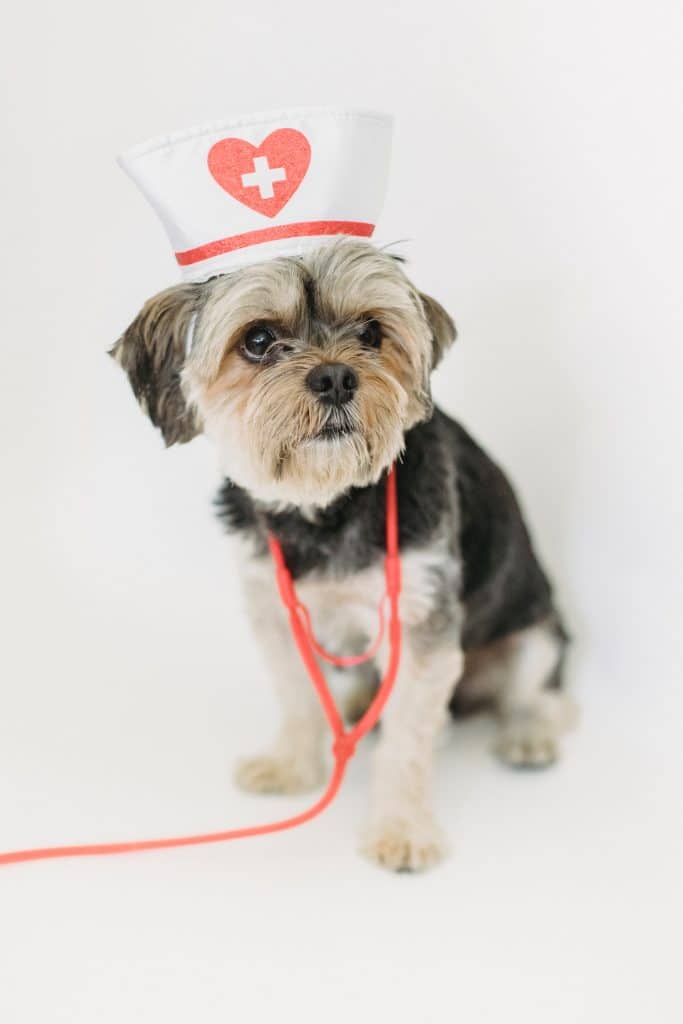Tracheal collapse refers to constriction of the air passage between the nose and lungs. A dog with collapsed trachea will gasp for air and show anxiety and fear. Tracheal collapse occurs mostly in middle-aged and senior dogs, but younger pups can also develop this medical condition.
If your dog has a collapsed trachea, you might want to know the best dog tracheal collapse home treatment. Here are a few treatments that can provide the dog some relief.
Make Dietary Changes
Excess weight in dogs complicates most medical conditions. If your dog is overweight, you need to make some dietary changes to achieve weight loss. You can choose a raw food diet or canned food diet to help your dog get rid of excess fat while maintaining lean muscle mass.

Plan Moderate Exercises
Exercise increases heart rate, and a dog with tracheal collapse may face difficulties breathing after strenuous exercise. So, plan moderate physical activity for your dog and span it out in a day to keep your pet fresh and active.
While taking your pet for a walk is recommended, you need to avoid dusty parks and heat stress. The environment for physical exercise is equally important for your dog.
If you are taking a dog for a walk, you need to avoid using a bandanna, regular dog collar, chain, or anything that will increase pressure on the dog’s neck. You can buy a harness instead of a collar that will not put any pressure on the trachea. Another option is to purchase a fi Smart Dog Collar, which uses advanced technology to track your dog’s location and activity while not posing any harm or discomfort.
Medications for Liver Support
Dogs with collapsed trachea develop liver disease due to reduced oxygenation. To prevent this, you need to give your dog medications for liver support. Experts mention milk thistle is a good herb, and it can help improve liver health.
Supplements and Medications
The use of the right supplements and medications is imperative for a dog tracheal collapse home treatment. These medications are indicated to treat a particular symptom related to the collapsed trachea.
Cough Suppressants
Dogs with collapsed trachea have dry cough fits that also induce anxiety and fear in the dog. You can use cough suppressants like Benadryl to treat a dog’s cough. You can also use conventional medicines to treat a canine’s cough. Avoid using steroids as its long-term use can make the problem worse. Veterinary doctors recommend using conventional cough suppressants to help control your dog’s reaction to the collapsed trachea.
You can use cough suppressants with butorphanol or hydrocodone to treat a dog’s cough. It is essential as continuous coughing can inflame the airways and cause more irritation, making your dog uncomfortable. The suppressants play a dual role in controlling the annoying symptom and reducing the irritation in the throat.
Anti-Inflammatory Medications/Supplements
Inflammation is one of the common symptoms associated with a collapsed trachea. You can give your dog anti-inflammatory medicines. Alternatively, you can introduce natural antioxidants and omega-3 fatty acids to a dog’s diet that can help reduce inflammation.

You can use anti-inflammatory medicines like prednisone or fluticasone. These medications can be given orally to the dog, or you can use special inhalers to deliver the medicine to the dog.
Medicines for Managing Stress and Anxiety
Tracheal collapse causes stress and anxiety in dogs. They can trigger and worsen the medical condition. Hence, it would help if you used medicines or therapies to manage stress and therapy to manage stress and anxiety in your dog. Experts mention aromatherapy is an excellent way to manage stress and anxiety.
You can use flower essences, homeopathy, and supplements to treat a dog’s anxiety. CBD chews and oil can also help alleviate stress and anxiety in a dog suffering from a collapsed trachea. You can contact a holistic veterinarian to know different natural ways to manage stress and anxiety in canines.
Bronchodilators
The constricted air passage causes difficulty in breathing. You can use bronchodilators like theophylline, terbutaline, or albuterol to widen the air passage and make breathing easier for the dog.
To sum up, these are some home treatments that you can follow to treat your dog with tracheal collapse.












Leave a Reply